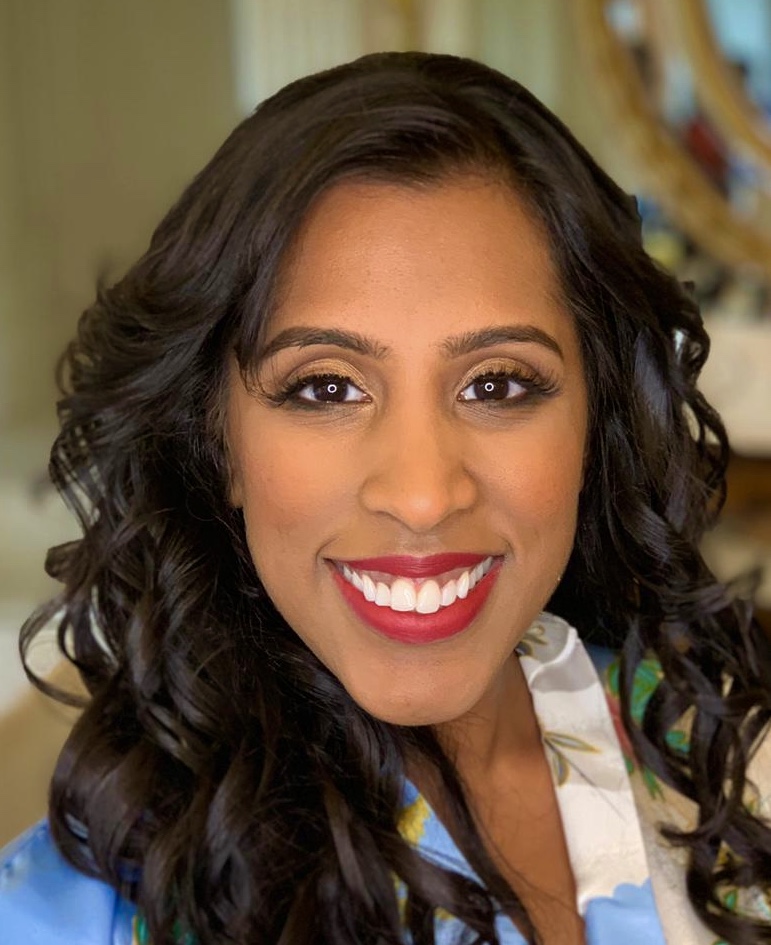 In addition to all of the more obvious effects such as deaths and lingering comorbidities wrought by the disease, a somewhat counterintuitive phenomenon took hold during the COVID-19 pandemic. Rather than having patients trust more in their health care system after having been through a health emergency, 32% of patients say they lost trust in the system.
In addition to all of the more obvious effects such as deaths and lingering comorbidities wrought by the disease, a somewhat counterintuitive phenomenon took hold during the COVID-19 pandemic. Rather than having patients trust more in their health care system after having been through a health emergency, 32% of patients say they lost trust in the system.
That’s a huge problem, said Gwendolyn Williams, MD, FHM, a hospitalist at Hampton, Va.-based Sentara Healthcare, in a talk at SHM Converge 2023.
“In health care, trust is the foundation of the patient-physician relationship,” Dr. Williams said. “Trust is actually essential to medicine.”

Dr. Williams
In her talk, she urged the health professionals in the audience to reflect more deeply on what trust is and on the importance of trust in their patient care. And she offered guidance on how to build this trust while pointing out common pitfalls that can subvert the effort.
The trust issue isn’t just a matter of patients losing faith in the health care system—other forms of trust fell off as well during the pandemic, according to a survey performed for the American Board of Internal Medicine by NORC at the University of Chicago, a non-partisan research organization.1 Nearly 30% of physicians said their trust in the U.S. health care system and health care organization leadership decreased. And 43% of them said their trust in government health care agencies decreased during the pandemic.
Physicians reported high levels of trust for other physicians and nurses during the pandemic, according to the survey. Nonetheless, the problem is clear, Dr. Williams said.
“The health care system is in a trust crisis,” she said.
But what, really, is trust? It’s not as simple as you might think—and neither is building a trusting relationship, Dr. Williams said.
Boiled down, in a trust relationship, the trustor has positive expectations about the competence of the other party and believes they will work in the trustor’s best interests, she said.
In “The Social Construction of Trust,” Linda Weber and Allison Carter say that trust consists of a belief that a person will behave in certain ways; an abstract attitude toward a proposition that someone is dependable; and a feeling of confidence, reliance, and security that the other person cares. And they say that to trust someone is to become vulnerable and dependent on the other person’s intentions and motivations.
Stephen Covey, who wrote “The 7 Habits of Highly Effective People,” said that while trust is “ethereal and unquantifiable,” it is “trust that makes the world go ‘round.”
In health care, high levels of trust lead to improved experiences and outcomes for patients and better compliance with their medical care, Dr. Williams said.
“When trust is absent or broken, everything sinks,” she said.
About half of physicians—49%—and patients—59%—say the health care system discriminates against people, with Black patients twice as likely to report discrimination by a doctor, the survey found.
“Our erosion of trust in this country is from discourse on very commonly discussed health care issues—vaccination during the pandemic, wearing masks,” Dr. Williams said. “Health policy science is increasingly polarized and misrepresented and we are being discredited every day. And the way to get back to it is to come together and we have to do the work.”
The first step is acknowledging the absence of trust, she said.
She urged the audience to start rebuilding trust in the physician-patient relationship by understanding the person’s difficulty and feeling moved to help—the concept of “compassionate empathy.” This, she said, is different than taking on the emotions of the patient in every case—“you can’t feel what everyone feels every second of the day…. you’ll burn out terribly.”
Compassionate empathy—“the ability to share in someone else’s emotion without taking them on as your own”—is the answer, she said.
She outlined 10 components:
- Dedicate time: Make sure you have the mental and emotional space to be present for a patient before engaging them. Avoid, say, delivering a difficult medical diagnosis to someone when you have five meetings immediately after.
- Actively listen: Pick up on feelings, needs, and values even when they’re not explicitly stated.
- Suspend judgment: No one will feel understood if you’re judging their feelings, how they’re expressing themselves, or what they’re saying, Dr. Williams said. “Everyone’s rationale is different,” she said. “Meet them at their point of view.” Open-ended questions–“Can you tell me more?”—can be helpful.
- Stay present: This can mean maintaining soft, caring eye contact, being aware when you get distracted, and not entering a conversation with predetermined intentions, beliefs, or goals for that person.
- Be patient: Don’t rush someone or finish their sentences for them, and pause to allow them to continue.
- Accurately mirror the person’s emotions: Once you sense the feelings of the other person, reflect their experience back to them in a compassionate way.
- Validate: Once you understand how the other person feels, respond with statements indicating that you do, such as, “It sounds like that experience was very upsetting.” Act with true concern for the other person, and not just how they’re performing.
- Agree to disagree: Even if you disagree, don’t let anger take over. Letting conversations escalate to arguments will backfire.
- Be careful of how you’re speaking: If you’re taking corrective action, clarify that you’re not attacking the person or their character, and explain tough decisions as transparently as possible.
- Reflect on emotional conversations: Think about what went well and plan for future conversations.
As difficult as building trust can be, it comes down to two simple things—listening closely and caring about others—and it’s just a matter of putting them into practice, Dr. Williams said.
A lot of it, Dr. Williams said, “we actually learned in kindergarten.”
Sometimes, circumstances can make trust-building a challenge. An audience member asked in a discussion after the talk: “As hospitalists, a lot of times we’re caught between the health care delivery system and the patient. And we have to tell patients, ‘Your surgery has been postponed—sorry you’ve been NPO (nothing to eat by mouth) for three days.’ How would you suggest, in our particular role, we can maintain trust when we’re always the ones who would bear bad news?”
Dr. Williams said honesty is the key.
“The patients will say, ‘Why didn’t you all talk to each other?’ That’s always what they say. And be honest. You can say, ‘We did,’ (but) don’t lie and say it if you didn’t.”
She added: “I’m honest with my patients all the time and they really appreciate it because I’m not feeding them something, and I’m not dismissing their experience. I’m understanding that their experience is hard for them, being in the hospital is hard, being in the hospital is terrifying, and they just want to go home.”
Tom Collins is a medical writer in South Florida, who has written about everything from lethal infections to thorny ethical dilemmas, runaway tumors to tornado-chasing doctors. He gathers health news from around the globe and lives in West Palm Beach.
Reference
- NORC at the University of Chicago. Public & Physician Trust in the U.S. Health Care System – COVID-19. ABIM Foundation website. https://buildingtrust.org/public-physician-trust-in-the-u-s-health-care-system/. Published 2022. Accessed May 24, 2023.